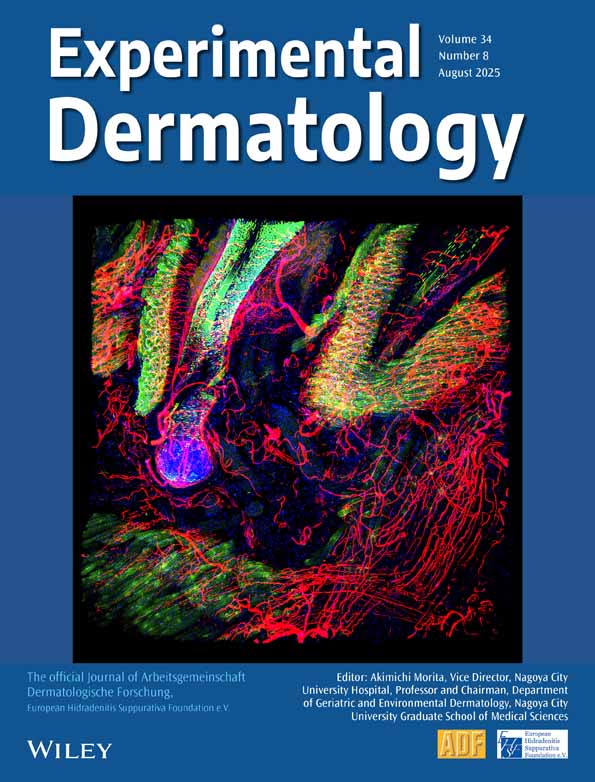α-MSH as a modulator of apoptosis in cutaneous biology
Abstract
The molecular pathways regulating ultraviolet (UV) radiation-induced apoptosis of melanocytes, a cell population crucially involved in the protection of epidermal keratinocytes against the harmful effects of UV light, are poorly characterized. We show that the α-melanocyte-stimulating hormone (α-MSH) blocks UVB-induced apoptosis of normal human melanocytes in vitro. The effect of α-MSH is not restricted to melanocytes but is also operative in cells that do not produce melanin, for example in human epidermal keratinocytes and in dermal fibroblasts. α-MSH not only delays but also protects melanocytes from UVB-induced cell death. The anti-apoptotic activity of α-MSH is not mediated by a filtering effect or induction of melanin synthesis. α-MSH also does not induce changes in the cell cycle distribution or expression of Bcl2, Bclx, CD95 (Fas/APO-1) and FasL. In contrast, α-MSH markedly reduces the formation of cyclobutane pyrimidine dimers induced by UVB radiation. Human dermal fibroblasts carrying a defective XPA gene are not protected from UVB-induced apoptosis by α-MSH. These results highlight a novel biological activity of α-MSH as well as novel regulatory pathways within the UV response of skin cells targeted by this neuropeptide.




